
312-981-0409
33 N Dearborn St 10th Floor, Chicago, IL 60602
Serving Clients Across 7 Illinois Locations
Recent Blog Posts
Can I Receive Compensation for Injuries Caused by Food Allergies?
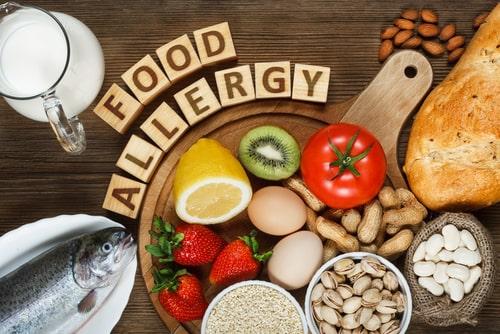 There are multiple ways that people can suffer injuries after consuming foods or food products. In many cases, injuries occur because of foodborne illnesses that cause food poisoning. However, people can also suffer serious harm if they have an allergic reaction to certain foods. It may be possible to hold a restaurant, grocery store, or manufacturer of food products liable for these types of injuries if it can be demonstrated that they acted negligently or did not take the proper measures to protect people’s safety. For example, a person may suffer an allergic reaction if they were not informed that a dish or product contained ingredients that could cause them harm, or cross-contamination may occur at a restaurant or grocery store, causing a person to be exposed to a harmful allergen.
There are multiple ways that people can suffer injuries after consuming foods or food products. In many cases, injuries occur because of foodborne illnesses that cause food poisoning. However, people can also suffer serious harm if they have an allergic reaction to certain foods. It may be possible to hold a restaurant, grocery store, or manufacturer of food products liable for these types of injuries if it can be demonstrated that they acted negligently or did not take the proper measures to protect people’s safety. For example, a person may suffer an allergic reaction if they were not informed that a dish or product contained ingredients that could cause them harm, or cross-contamination may occur at a restaurant or grocery store, causing a person to be exposed to a harmful allergen.
Common Food Allergies and Allergic Reactions
While there are many different types of foods that can cause allergic reactions, some food allergies that commonly affect people in the United States include:
What Are the Symptoms and Effects of E. Coli Food Poisoning?
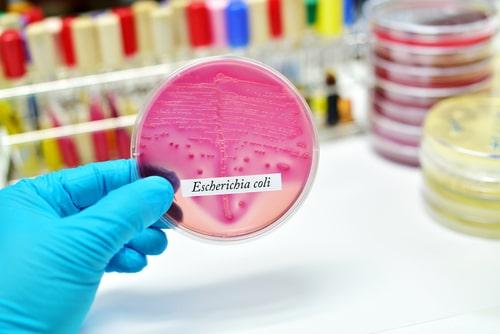 There are a wide variety of foodborne illnesses that affect people in the United States. Typically, food poisoning occurs because harmful bacteria, viruses, or toxins are present in foods that are made available to consumers, including items sold at grocery stores, dishes served at restaurants, and food products sold or provided at other locations. E. coli is one of the most common foodborne pathogens. It is estimated that 265,000 people in the U.S. are infected with this bacteria every year, and these infections result in 3,600 hospitalizations and 30 deaths.
There are a wide variety of foodborne illnesses that affect people in the United States. Typically, food poisoning occurs because harmful bacteria, viruses, or toxins are present in foods that are made available to consumers, including items sold at grocery stores, dishes served at restaurants, and food products sold or provided at other locations. E. coli is one of the most common foodborne pathogens. It is estimated that 265,000 people in the U.S. are infected with this bacteria every year, and these infections result in 3,600 hospitalizations and 30 deaths.
Shiga Toxin-Producing E. Coli
The most dangerous strains of E. coli produce a substance known as a Shiga toxin, which can cause serious harm to the human body. Shiga toxin-producing E. coli (STEC) is often present in the intestines of livestock and other animals, and it may be spread to crops or other plants by these animals. It can also infect food products during the process of packaging, shipping, or preparation.
Why Are Leafy Greens Commonly Involved in E. Coli Outbreaks?
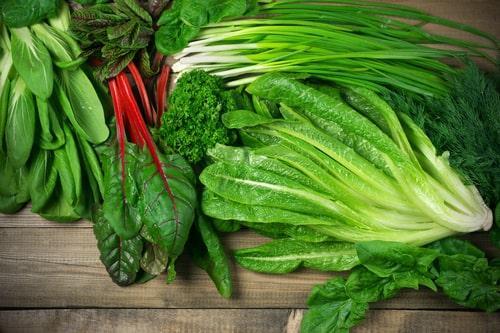 People in the United States are often affected by foodborne illnesses. Even though companies that grow, pack, manufacture, distribute, and sell food products are required to meet certain standards to ensure that these products are safe to eat, some foods still become contaminated, leading to serious cases of food poisoning. Of the many different sources of foodborne illness, E. coli is one of the most common, and over the past several years, there have been dozens of outbreaks that have been linked to lettuce, spinach, and other leafy greens.
People in the United States are often affected by foodborne illnesses. Even though companies that grow, pack, manufacture, distribute, and sell food products are required to meet certain standards to ensure that these products are safe to eat, some foods still become contaminated, leading to serious cases of food poisoning. Of the many different sources of foodborne illness, E. coli is one of the most common, and over the past several years, there have been dozens of outbreaks that have been linked to lettuce, spinach, and other leafy greens.
Most recently, an E. coli outbreak resulted in 40 infections and 20 hospitalizations across 19 states between August and October of 2020. The majority of the patients interviewed during an investigation by the Centers for Disease Control and Prevention (CDC) reported eating leafy greens such as spinach or romaine lettuce before becoming infected. However, the CDC was unable to identify a specific source of this outbreak, since the harvesting, processing, and packaging of different types of leafy greens makes it difficult to determine where the original contamination occurred.
Peaches Responsible for One of the Largest Salmonella Outbreaks of 2020
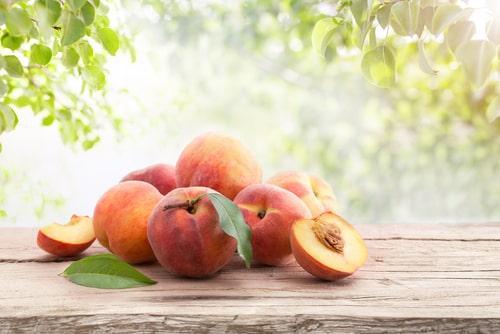 Even though consumers in the United States expect the food products they purchase to be safe, the systems that are meant to protect against the spread of dangerous pathogens sometimes fail. When food that is tainted by viruses, bacteria, or other toxic substances is made available for purchase, this can result in food poisoning, which can cause long-lasting injuries to those who are affected. Salmonella is one of the most common sources of foodborne illnesses, and a variety of food products have been found to be contaminated by this bacteria. In 2020, one of the largest salmonella outbreaks was caused by peaches sold at grocery stores in multiple different states.
Even though consumers in the United States expect the food products they purchase to be safe, the systems that are meant to protect against the spread of dangerous pathogens sometimes fail. When food that is tainted by viruses, bacteria, or other toxic substances is made available for purchase, this can result in food poisoning, which can cause long-lasting injuries to those who are affected. Salmonella is one of the most common sources of foodborne illnesses, and a variety of food products have been found to be contaminated by this bacteria. In 2020, one of the largest salmonella outbreaks was caused by peaches sold at grocery stores in multiple different states.
Recall of Prima Wawona Peaches
A multi-state outbreak of Salmonella Enteritidis occurred between June and August of 2020. According to the CDC, 101 people in 17 states were infected, and while no deaths occurred, 28 people were hospitalized. These infections were traced to peaches packed and distributed by Prima Wawona and the Wawona Packing Company. This led the company to recall both bagged and loose peaches that had been distributed to grocery stores in multiple states.
How Has COVID-19 Impacted the USDA’s Efforts to Fight Foodborne Illness?
 This year has been a challenging time for businesses everywhere, especially those deemed essential workers. Government agencies, including the U.S. Department of Agriculture’s (USDA) Food Safety and Inspection Service (FSIS), fall within this category and have continued to work despite the threat of the COVID-19 virus. As the pandemic reaches its tenth month in the U.S., many businesses have become accustomed to working during these unprecedented times. FSIS recently released its annual accomplishments in modernizing the agency and fulfilling its mission to prevent foodborne illness throughout the United States.
This year has been a challenging time for businesses everywhere, especially those deemed essential workers. Government agencies, including the U.S. Department of Agriculture’s (USDA) Food Safety and Inspection Service (FSIS), fall within this category and have continued to work despite the threat of the COVID-19 virus. As the pandemic reaches its tenth month in the U.S., many businesses have become accustomed to working during these unprecedented times. FSIS recently released its annual accomplishments in modernizing the agency and fulfilling its mission to prevent foodborne illness throughout the United States.
Working During the Pandemic
FSIS employs approximately 9,000 employees who are spread across laboratories, federally regulated establishments, import establishments, or in-commerce facilities. According to the agency’s fiscal year report, no FSIS regulated establishments closed as a result of absent inspection personnel. The agency called on other USDA employees when necessary to supplement any missing workers due to the pandemic. This allowed FSIS to inspect over 166 million head of livestock, 9.68 billion poultry carcasses, 2.5 billion pounds of egg products, and more.
How Do I Know If My Symptoms are a Result of Food Poisoning?
 This past year, illness has taken on a new meaning altogether. The wide range of COVID-19 symptoms can leave you thinking that any sense of sickness can be attributed to the virus. With symptoms including nausea, vomiting, and diarrhea, it may be difficult to decipher if your symptoms are a result of COVID-19, the “stomach flu,” or a case of food poisoning. For many, COVID-19 poses a serious risk to themselves or their elderly loved ones, which is why it is critical to know why you are experiencing your symptoms and if your condition is contagious. If you are experiencing these symptoms, it is always advisable to seek out proper testing to rule out COVID-19, but there is no definitive test for the stomach flu or food poisoning. Luckily, there are a few differences that can help you determine what the real driver of your symptoms is.
This past year, illness has taken on a new meaning altogether. The wide range of COVID-19 symptoms can leave you thinking that any sense of sickness can be attributed to the virus. With symptoms including nausea, vomiting, and diarrhea, it may be difficult to decipher if your symptoms are a result of COVID-19, the “stomach flu,” or a case of food poisoning. For many, COVID-19 poses a serious risk to themselves or their elderly loved ones, which is why it is critical to know why you are experiencing your symptoms and if your condition is contagious. If you are experiencing these symptoms, it is always advisable to seek out proper testing to rule out COVID-19, but there is no definitive test for the stomach flu or food poisoning. Luckily, there are a few differences that can help you determine what the real driver of your symptoms is.
Symptom Differences
Illinois Has the Most Cases in Third Multi-State E. Coli Outbreak
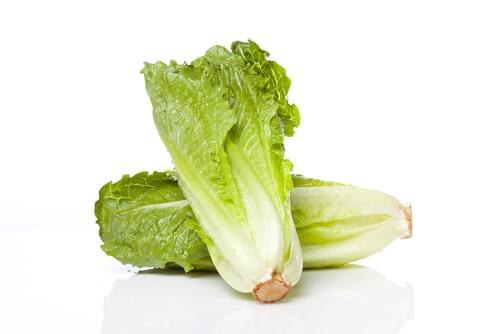 This fall, food poisoning outbreaks have surged throughout the country, including recent E. coli outbreaks. The FDA and CDC have been busy investigating illnesses in this fall’s third multistate outbreak of E. coli. According to the CDC, infections have been reported in six states, with at least 12 people infected and five hospitalized and one-third of all reported cases coming from Illinois. The identified source, however, was distributed to 19 states and Puerto Rico, leaving a large number of people at risk of contracting food poisoning. At Newland & Newland, LLP, we fight for those who have fallen ill to foodborne illnesses as a result of food vendors’ negligence, including products sold in grocery stores across the nation.
This fall, food poisoning outbreaks have surged throughout the country, including recent E. coli outbreaks. The FDA and CDC have been busy investigating illnesses in this fall’s third multistate outbreak of E. coli. According to the CDC, infections have been reported in six states, with at least 12 people infected and five hospitalized and one-third of all reported cases coming from Illinois. The identified source, however, was distributed to 19 states and Puerto Rico, leaving a large number of people at risk of contracting food poisoning. At Newland & Newland, LLP, we fight for those who have fallen ill to foodborne illnesses as a result of food vendors’ negligence, including products sold in grocery stores across the nation.
The Source of the Outbreak
The recently released CDC notice connects the E. coli outbreak to a brand of romaine lettuce that is sold in grocery stores nationwide, including Walmart. The lettuce is sold under the name Tanimura & Antle, and the recalled lettuce was labeled with a “packed on” date of 10/15/2020 or 10/16/2020. The lettuce was lab tested by the Michigan Department of Agriculture and Rural Development and the outbreak strain was identified in a sample of the company’s single-head romaine lettuce. Illinois holds the highest number of cases, with four recorded. Though the E. coli strain was found in the sampled lettuce, the CDC stated that they were unable to definitively determine whether the Tanimura & Antle romaine lettuce did indeed cause the illnesses. In order to protect consumers, those who have purchased the lettuce have been advised to avoid consuming the product.
Recent Study Leaves Deer Hunters Wary of Consuming Venison
 As deer hunting season begins in the state of Illinois, a recent study reveals concerning information about the consumption of venison after hunting these animals. For some, hunting is about the game, without the expectation of eating the animal afterwards. For others, the meal that comes from the recreational activity is the primary driver behind participating in deer hunting. With over 75,400 deer harvested in the 2019-2020 season, many Illinoisans are participating in the activity, potentially risking contracting a form of food poisoning in the process.
As deer hunting season begins in the state of Illinois, a recent study reveals concerning information about the consumption of venison after hunting these animals. For some, hunting is about the game, without the expectation of eating the animal afterwards. For others, the meal that comes from the recreational activity is the primary driver behind participating in deer hunting. With over 75,400 deer harvested in the 2019-2020 season, many Illinoisans are participating in the activity, potentially risking contracting a form of food poisoning in the process.
Lead Poisoning Found in Deer Meat
A recently published study, authored by two Illinois Wesleyan University faculty members and a Bloomington veterinarian, revealed significant traces of lead contamination in shotgun-harvested deer. The researchers measured lead concentrations in ground venison packets from deer that were harvested in Illinois in 2013 and 2014. It was found that nearly 50 percent of the packets tested positive for lead contamination, with some even containing lead fragments. The researchers attribute the contamination to lead shotgun ammunition, a common form of ammunition that is used while hunting deer.
Common Symptoms and Sources of Food Poisoning
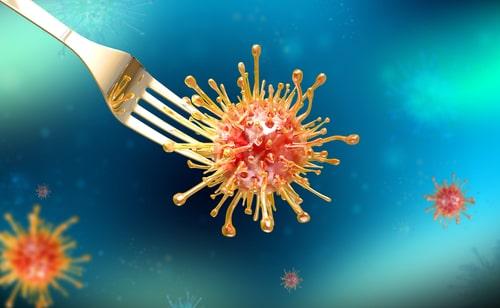 You have likely had the experience of eating a meal that tasted great at a restaurant, but quickly turned to days filled with a sick stomach. When you go out to eat, you expect to have a safe and healthy experience along with tasting great food. Unfortunately, eating at a restaurant can sometimes result in food poisoning. In fact, approximately 48 million cases of food poisoning occur each year.
You have likely had the experience of eating a meal that tasted great at a restaurant, but quickly turned to days filled with a sick stomach. When you go out to eat, you expect to have a safe and healthy experience along with tasting great food. Unfortunately, eating at a restaurant can sometimes result in food poisoning. In fact, approximately 48 million cases of food poisoning occur each year.
Depending on how the food was prepared and whether or not the restaurant’s cooking surfaces were properly sanitized, certain germs that are consumed can lead to food poisoning. This illness can range from mild to severe depending on the germs that you ingested and the way that your body reacts to them.
If you have experienced any of the following symptoms after consuming contaminated food, you may have been a victim of food poisoning, and you may be able to take legal action:
Have You Recently Gotten Sick at a Chinese Restaurant? Recalled Food May Be to Blame
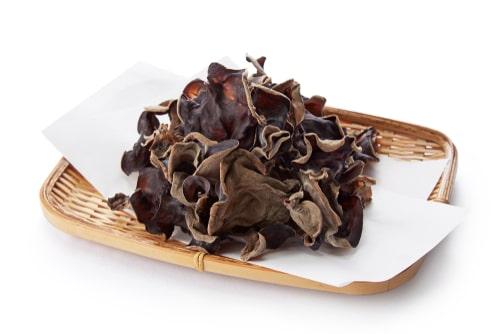 In the past week, a common ingredient used in Chinese restaurants across America has been recalled after salmonella was detected in samples of the product. On September 23, the brand Shirakiku was recalled by manufacturer Wismettac Asian Food Inc. The product is imported dried fungus, also known as tree ear fungus, black fungus, or cloud-ear fungus due to its appearance. This fungus is an edible mushroom that is commonly used in Chinese cooking in the U.S. Black fungus originated in China, but can also be found in tropical regions such as Hawaii, Nigeria, the Pacific Islands, and more. The reason these mushrooms are so dangerous? Their tendency to absorb contaminants from their environment.
In the past week, a common ingredient used in Chinese restaurants across America has been recalled after salmonella was detected in samples of the product. On September 23, the brand Shirakiku was recalled by manufacturer Wismettac Asian Food Inc. The product is imported dried fungus, also known as tree ear fungus, black fungus, or cloud-ear fungus due to its appearance. This fungus is an edible mushroom that is commonly used in Chinese cooking in the U.S. Black fungus originated in China, but can also be found in tropical regions such as Hawaii, Nigeria, the Pacific Islands, and more. The reason these mushrooms are so dangerous? Their tendency to absorb contaminants from their environment.
Based in Santa Fe Springs, CA, Wismettac Asian Food Inc. has been asked to recall their product Shirakiku by the California Department of Public Health. The department detected traces of salmonella, the leading cause of food poisoning, in product samples. Though the company is based in California, this product is distributed throughout the U.S., Illinois included. As of September 24, over 40 people had been infected from a spread of ten states. In other words, if you have recently eaten at a Chinese restaurant and gotten sick afterwards, this fungal product may be to blame.
-

Foreclosure and Bankruptcy
Visit Website -

Real Estate and Estate Planning
Visit Website -

Personal Injury
Visit Website

 Spanish
Spanish Cantonese
Cantonese















